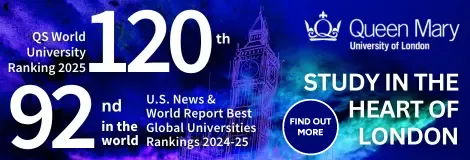Since its establishment in 1876, the University of Bristol has made significant contributions in diverse fields. From pioneering advancements in cot death prevention to groundbreaking contributions in nanotechnology, the University is renowned for its academic excellence, particularly in medical sciences.
Aspiring medical professionals will receive an excellent education and become part of a global network of successful alumni, significantly impacting over 190 countries worldwide. Students at Bristol engage in intellectually challenging programmes, shaping them into well-rounded individuals equipped to tackle the world's most pressing issues.
However, to study medicine at Bristol University, students must go through rigorous entry requirements to ensure that those admitted possess the academic acumen required to succeed in medicine. The entry requirements to study medical science at Bristol University are:
- IB Diploma - 36 points overall with 18 at Higher Level, including 6, 6 at Higher Level in Chemistry and one of Biology, Physics or Mathematics
- IB Diploma contextual offer- 32 points overall with 16 at Higher Level, including 6 at Higher Level in Chemistry and 5 at Higher Level in one of Biology, Physics or Mathematics
Learn more about studying medical sciences at Bristol University or book a free consultation with SI-UK today.
Why Choose Bristol for Medical Sciences?
Studying medicine at the University of Bristol is a strategic choice for aspiring medical professionals. The university medicine degrees are accredited by the General Medical Council (GMC), ensuring the development of essential knowledge, skills, and attitudes required by the council.
1. Impressive Ranking
Bristol's consistent placement among the world's top 100 and the UK's top 10 universities underscores its unwavering commitment to excellence in both research and teaching. The university's notable 59th position in THE's 2024 Subject Ranking for clinical and health solidifies its status as a prominent institution in the realm of medical sciences. This ranking is a testament to Bristol's enduring pursuit of academic distinction and significant contributions to the field, further establishing its global reputation.
2. Tuition Fees
Investing in medical education at Bristol has an annual tuition fee of £31,300 for international students. While this financial commitment might seem substantial, it is a strategic investment in a world-class education and a qualification recognized globally. The cost encompasses not only the invaluable learning experience provided by Bristol but also the potential for a fulfilling and impactful career in the medical field. Bristol ensures that students receive a return on their investment far beyond the classroom, preparing them for success in a competitive and dynamic healthcare landscape.
3. Renowned Faculties
Its distinguished faculty members, often pioneers in their respective fields, uphold Bristol's standing as a research-intensive university. The institution's commitment to excellence is evident in its two distinct routes for medical training—the MB ChB Gateway to Medicine and the MB ChB Medicine. This dual approach provides students with a comprehensive education and fosters a diverse and collaborative academic environment.
Through practical, real-life experiences gained from training in hospitals across Bristol and its surrounding areas, students develop a hands-on understanding of medical practices, enhancing their readiness for the challenges of the healthcare profession.
4. Career Opportunities
Bristol's graduates enjoy a distinct advantage in the job market, positioning the university as one of the most targeted by leading UK employers. The Graduate Market in 2023 study revealed that Bristol alumni hold the impressive fourth position in targeting by organizations listed in The Times 'Top 100 Graduate Employers.' The university's commitment to supporting graduates extends beyond graduation through its robust Careers Service. This service provides extensive support, including job placement assistance, internship access, and entrepreneurial venture funding for up to three years post-graduation.
Bristol's emphasis on holistic career development ensures graduates can navigate the professional landscape and make meaningful contributions to their respective fields.
Study Medical Sciences at Bristol University
Contact SI-UK to learn more about studying medical sciences at Bristol University or to begin your application for the upcoming intakes.
FAQ
What makes Bristol University a popular choice for medical science students?
Bristol University is renowned for its excellent medical sciences courses offered in state-of-the-art facilities, cutting-edge research opportunities, and experienced faculty. Also, it has a high ranking in the field of medical sciences, providing students with a top-notch education and a competitive edge in their careers.
How do I apply for scholarships or financial aid at Bristol as an Indian student?
Bristol University offers scholarships for international students, including those from India. To apply, visit the university's official scholarship website and follow the application guidelines. Before applying for Bristol University scholarships, check specific scholarship opportunities for Indian students, and ensure that you meet the eligibility criteria.
How does Bristol University support international students, particularly Indians, with their accommodation?
Bristol University provides various accommodation options for international students and has dedicated support services to help them find suitable housing. The university's accommodation office assists Indian students in the process of securing housing, offering guidance on different options and providing information on living in Bristol.
Can students work part-time while studying medicine at Bristol University?
Yes, international students, including those studying medicine, can usually work part-time while studying at Bristol University. However, there may be restrictions on the number of hours students can work, and it is essential to be aware of visa regulations and university policies regarding part-time employment.
How does the cost of living in Bristol compare to other UK cities?
Bristol's cost of living may vary, but it is generally considered to be lower than in cities like London. Students can find affordable accommodation, and daily expenses may be more reasonable compared to the other major UK cities.
What is the process for obtaining a student visa to study medicine in the UK?
The student visa process involves applying through the UK government's official visa application system. Bristol University's international student support services can guide Indian students through the visa application process, providing the necessary documentation and assistance to ensure a smooth application.
Can Indian students pursue postgraduate medical studies at Bristol University?
Indian students can pursue postgraduate medical studies at Bristol University. However, they must meet the entry requirements for the specific postgraduate medical course and follow the university's application process for postgraduate admissions.



 I sincerely thank SI-UK for getting me accepted to UCL. The MSc in Urban Development and Planning is extremely competitive, but the right guidance provided by SI-UK made my dream of studying at University College London a reality. The services were exceptional from beginning to end.
I sincerely thank SI-UK for getting me accepted to UCL. The MSc in Urban Development and Planning is extremely competitive, but the right guidance provided by SI-UK made my dream of studying at University College London a reality. The services were exceptional from beginning to end. 

